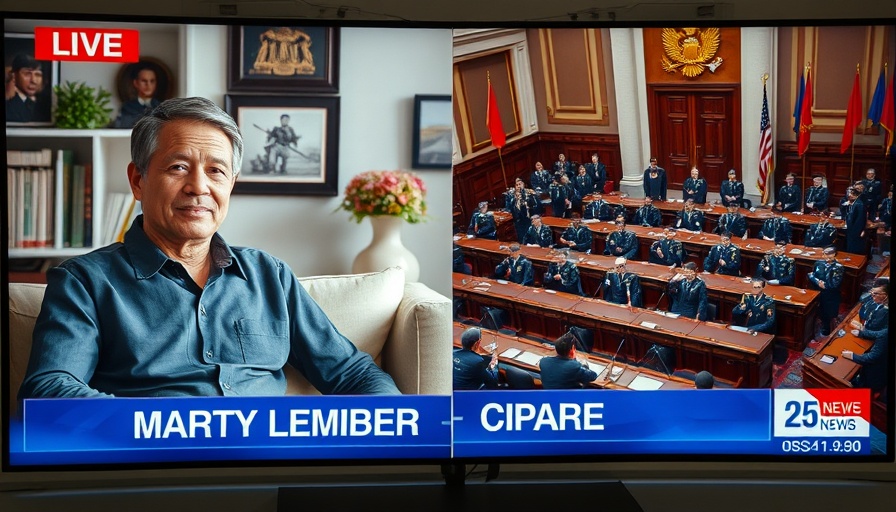
The EFF's Bold Claim: A New Chapter in South African Politics
The Economic Freedom Fighters (EFF) recently made waves in the political arena, asserting that the so-called Government of National Unity (GNU) is effectively non-existent. This claim was prominently voiced during recent events in the National Assembly, where the EFF underscored what they describe as the government's imminent collapse. This declaration comes on the heels of the adoption of the 2025 Fiscal Framework and Revenue Proposal, which saw contentious debates and significant dissent from the Democratic Alliance (DA), the key partner in the GNU along with the African National Congress (ANC).
Fiscal Framework: A Flashpoint for Political Tensions
The 2025 Fiscal Framework includes provisions that call for Treasury to propose alternatives to impending tax hikes within 30 days while reversing a planned VAT increase. This proposal reflects growing dissent among political factions as they grapple with fiscal responsibility amidst economic struggles.
In a stark representation of political divisions within the GNU, 194 members voted in favor of the proposal while 182 opposed it. EFF leader Julius Malema leveraged this moment to reiterate his party's longstanding skepticism of the GNU’s legitimacy. His remarks implied that today’s events were a culmination of the GNU's inadequacies, a sentiment echoed by other opposition figures.
Voices from the Opposition: Diverse Concerns
ATM leader Vuyolwethu Zungula expressed outrage over the approval of the budget, deeming it a travesty reflective of ineffective governance. He criticized the proposed VAT increases, arguing that the government failed to explore viable alternatives such as a wealth tax or mining royalties. Zungula articulated a common frustration among political disparate groups within the assembly, pointing to a lack of creativity and urgency in addressing the economic challenges faced by South Africans.
Political Realignment: The Future of the GNU
As South Africa approaches the 2024 general elections and 2026 municipal elections, the longevity and effectiveness of the GNU remain critical discussion points among voters. Many citizens express concerns about electoral reform and the implications of a free market economy versus state control.
Will the ongoing discord between the ANC and DA lead to a realignment of political forces as the electorate becomes increasingly disenchanted with the status quo? The EFF's message appears to resonate with a growing number of South Africans who feel alienated by traditional party politics.
The EFF's Challenge to the Status Quo: Impacts on Public Policy
The EFF's forthright assertion about the government's stability could catalyze shifts in public policy discourse. From land reform and expropriation without compensation to economic policy and service delivery improvements, the call for accountability is becoming louder among voters.
This turbulent environment also thrusts issues such as gender-based violence and income inequality into the spotlight, compelling parties to address these challenges proactively. The public's desire for reform in basic service delivery is undeniable, with increasing pressure on the government to implement anti-corruption measures and ensure judicial independence.
Current Implications: What Lies Ahead?
The turbulent fabric of South African politics indicates that the onus is on all political parties to respond with integrity and forthrightness. As the EFF pushes back against the fashionable veneer of the GNU, the path ahead is fraught with uncertainty yet rife with potential for substantial change.
The unfolding of these events not only affects the political landscape but also echoes in the everyday lives of South African citizens, influencing public sector reform and socioeconomic mobility. As conditions evolve, only time will tell whether the GNU remains entrenched or if it evolves into a coalition capable of genuinely addressing historical inequities and current crises.
Embracing Civic Engagement: A Call to Action
In light of these political developments, citizens are encouraged to remain engaged and informed. The forthcoming elections are a critical opportunity for voters to express their opinions and call for greater political accountability and transparency. Participation in the electoral process is essential—not just for gauging party performance but for shaping a more equitable future for all South Africans.
 Add Row
Add Row  Add
Add 




Write A Comment